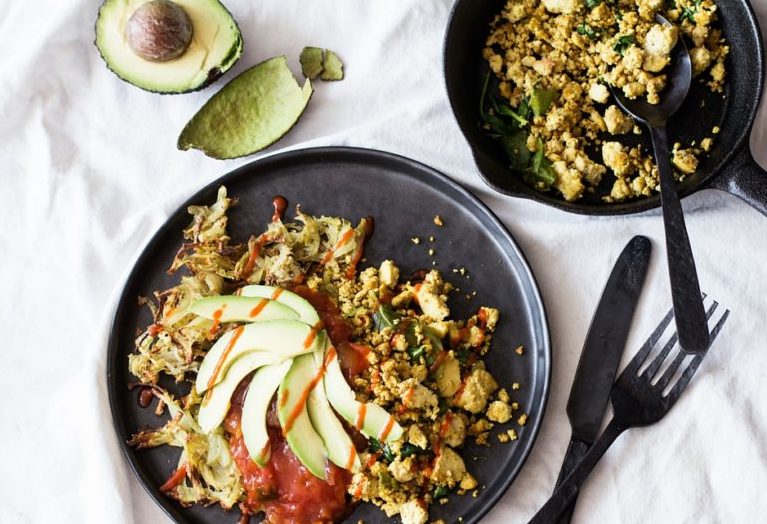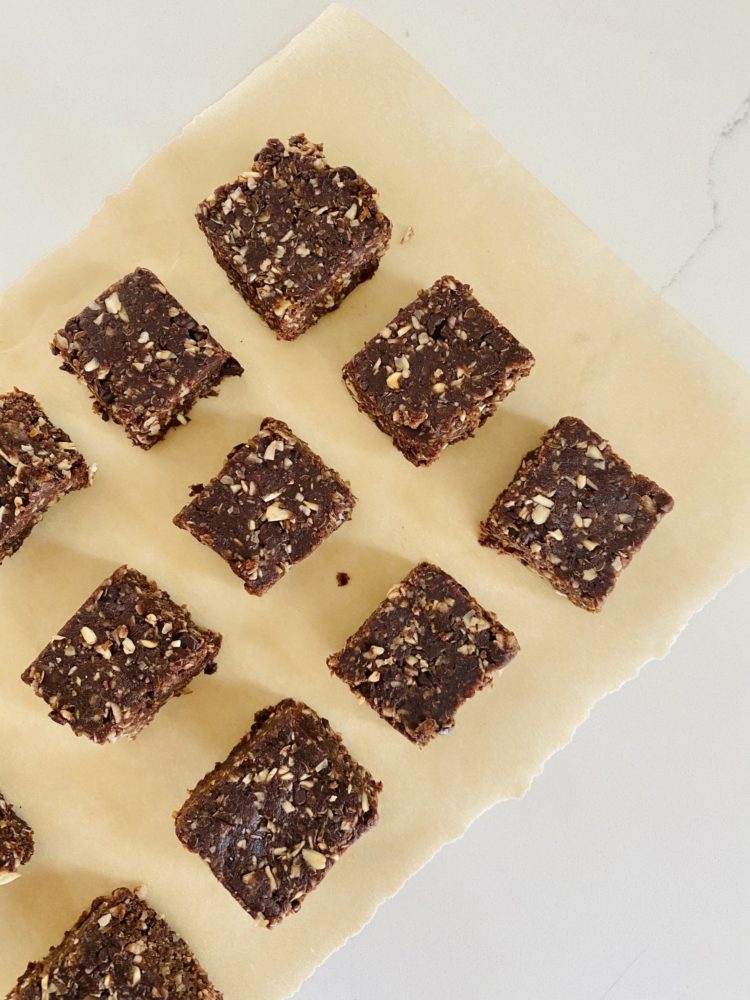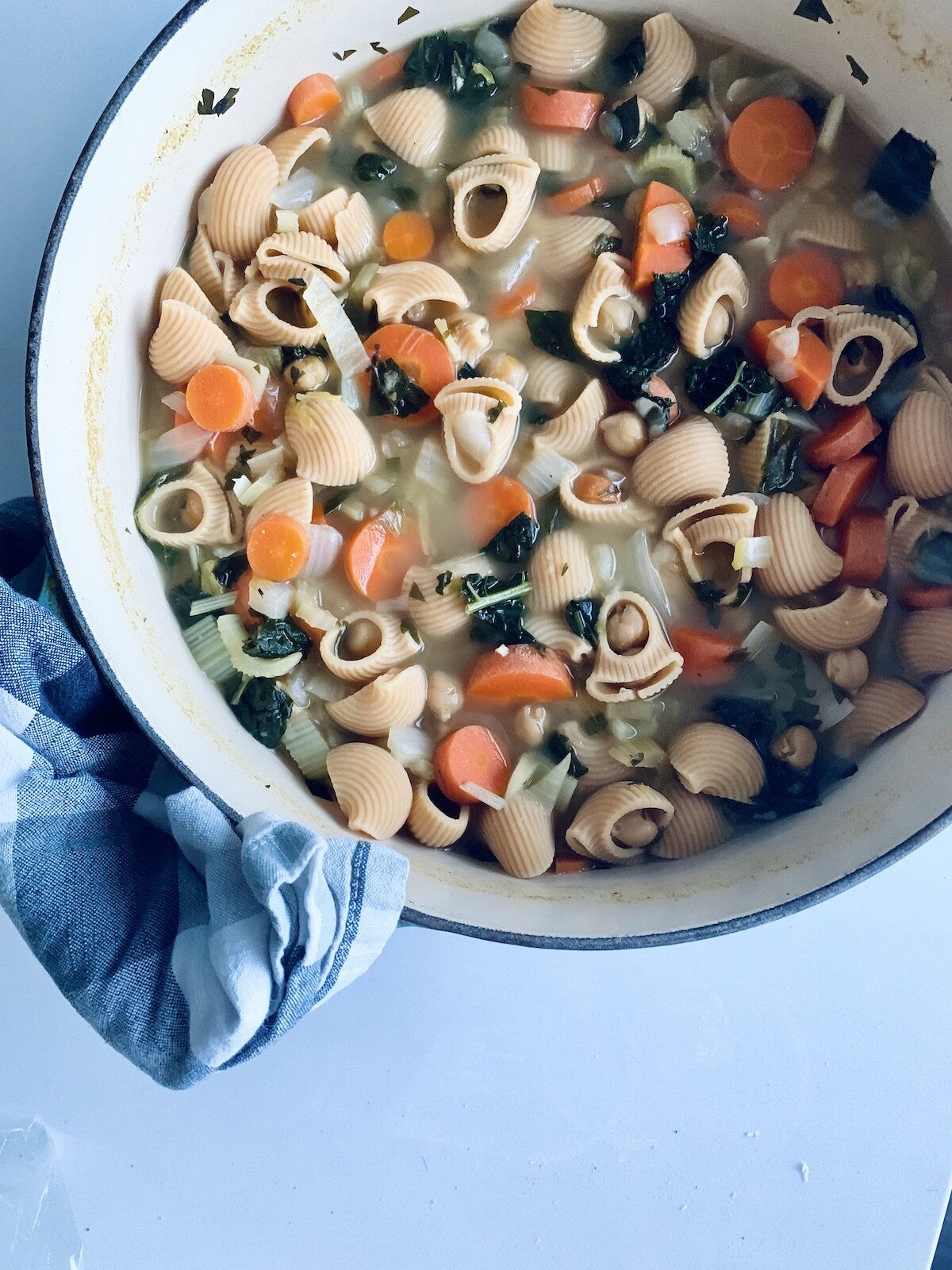After more than a decade as a plant-based dietitian, nothing angers me more than the pervasiveness of diet culture within plant-based nutrition, especially the messages targeted about women. In fact, it’s one of the key reasons why Plant-based Mavens exists – to give women a space to learn about plant-based living without a side of diet culture. In this article, I’ll explain what it is, how it shows up in plant-based nutrition, how it might be hurting you, and what you can do to have a healthier relationship with food. Let’s do this!
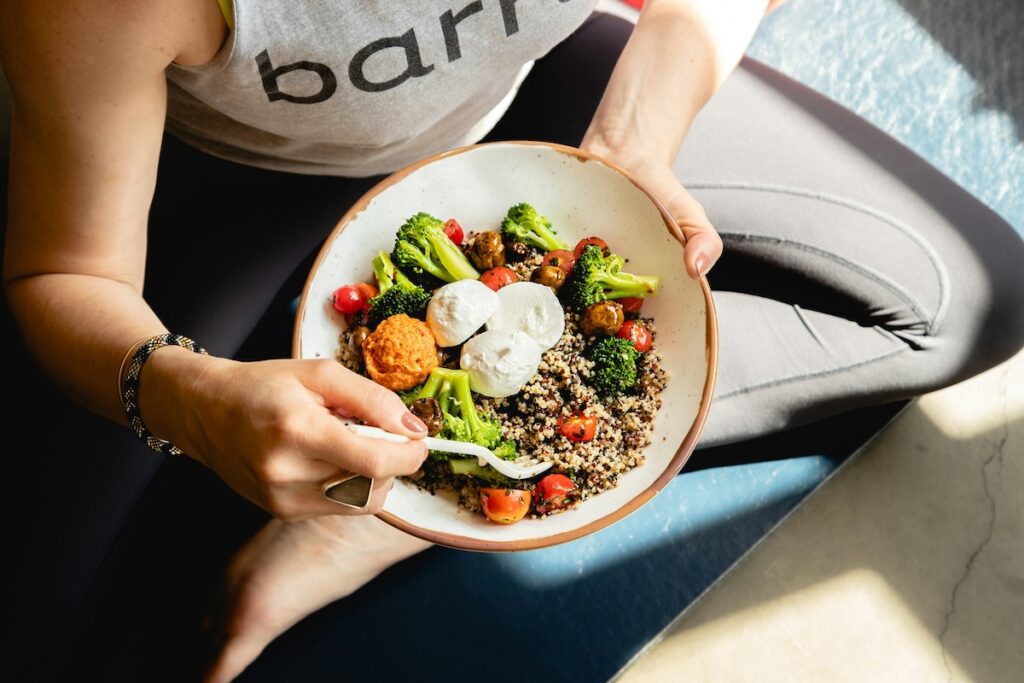
What is diet culture?
Diet culture is a pervasive force in our society that places a high value on thinness, appearance, and weight loss above all else. It has roots in racism and sexism, with women and people in minority groups being the most vulnerable to its impact. It promotes the idea that restricting food intake and pursuing weight loss are essential for health and well-being. This mindset is reinforced through various mediums, from media portrayals of “ideal” bodies to the messages we receive from friends, family, and even health professionals.
One of the key aspects is the promotion of strict eating regimens, quick fixes, and the thin ideal. It perpetuates the belief that certain foods are “good” while others are deemed “bad,” and that people in thinner bodies are automatically healthier and more attractive than people in larger bodies. It doesn’t celebrate diversity in body types. It sends the message that their is moral virtue in achieving the “thin ideal” appearance.
It also often leads to harmful practices and beliefs that can negatively impact both physical and mental well-being. It overlooks the fact that bodies come in all shapes and sizes, that appearance and even body weight are poor measures of health, and that true well-being encompasses more than just physical health. By equating weight loss with health and moral superiority, these messages perpetuate harmful stereotypes and beliefs in our culture.
Diet culture messaging is not exclusive to the diet industry. We see it in schools, doctor’s offices, and around the family dinner table. Many healthcare professionals, while well-meaning, may unintentionally reinforce harmful beliefs about weight and body size. The focus on weight loss as a solution to health issues can lead to a neglect of other important factors, such as mental health, self-care, and overall well-being. In the plant-based world, many experts and influencers perpetuate diet mentality with fear-based messaging around food, strict food rules, and emphasis on appearance and thinness.
The harmful effects of diet culture
When nutrition advice is laced with diet culture, it causes a lot of damage to your relationship with food, your self-esteem, and your health.
Body dissatisfaction and low self-esteem
It perpetuates unrealistic beauty standards and weight stigma, leading to negative body image and low self-esteem. By promoting the idea that you must achieve a certain body size or weight to be considered attractive or worthy, it creates a toxic mindset that fosters body dissatisfaction. This constant pressure to conform to unrealistic ideals can have detrimental effects on mental health, contributing to feelings of inadequacy, shame, and self-doubt.
Disordered eating behaviors
It contributes to the development of disordered eating behaviors by promoting restrictive and unhealthy attitudes towards food and body image. After all, dieting is one of the top precursors to eating disorders! The emphasis on achieving a certain body size or weight, along with the demonization of certain foods, can lead individuals to develop harmful relationships with food and exercise. The pressure to conform to societal beauty standards and the belief that worth is tied to appearance can fuel disordered eating patterns, such as binge eating, restrictive eating, or over-exercising. This toxic mindset can lead to the development of eating disorders and have serious implications for both physical and mental health.
Health risks and nutrient deficiencies
It can cause nutrient deficiencies and other health issues by promoting restrictive eating habits and categorizing certain foods as “good” or “bad”. By restricting your food and limiting the types of foods you eat, you likely won’t get all of the nutrients, vitamins, and minerals you need. I’ve worked with countless plant-based women over the years with osteopenia, low energy, and even hair loss linked to nutrient deficiencies from limited diets.
Additionally, the focus on thinness over health can result in individuals prioritizing weight loss goals over nourishing their bodies properly. This can contribute to a variety of health issues, including weakened immune systems, hormonal imbalances, and increased risk of chronic diseases.
The intersection of diet culture and plant-based diets
The plant-based world is not immune to the impact of diet culture. It shows up in many ways and can make it so much harder to actually adopt plant-based eating long-term. After 10+ years counseling people at various stages of their plant-based journeys, trust me I know! Here are some of the ways that diet culture shows up in plant-based eating.
The pressure to be “perfect”
In many corners of the plant-based world there is pressure to be “perfect” in adhering to a specific set of guidelines or rules. In order to be considered a “good” plant-based eater, you may feel the need to strictly follow a particular regime, such as eating only raw foods, avoiding any processed products, cutting out every drop of oil or added sugar, or eating elaborate bowls of exotic fruits at every meal. This pressure can create a sense of anxiety and guilt when deviation from these rules occurs, which is not conducive to a healthy relationship with food. The focus is on following rules instead of getting in touch with your own personal needs.
Another pervasive message is the promotion of “clean” eating and the demonization of certain foods. This can create a sense of moral superiority for those who strictly adhere to these guidelines, but it can also lead to feelings of guilt and shame for those who occasionally consume foods that are considered “unclean”. This pursuit of perfection makes it incredibly difficult for most people to stick with plant-based eating long-term.
The emphasis on weight loss and thinness
Many people turn to a plant-based diet with the intention of losing weight, and while weight loss can be a natural side effect of adopting a plant-based lifestyle for SOME people, it should not be the sole focus since it isn’t a great measure of overall health. People come to plant-based eating for a variety of reasons, including ethics, spirituality, environmental impact, and overall health. However, excessive emphasis on weight loss and thinness can overshadow these other important factors, disconnecting you from the deeper reasons behind your food choices.
This emphasis on weight loss can lead to a constant pursuit of a certain number on the scale, creating a toxic relationship with food and body image. It can create a mindset where food choices are solely motivated by the desire to achieve a specific body shape or size, rather than prioritizing nourishment and overall well-being. It can also lead to disappointment, shame, or disengagement when weight loss doesn’t happen.
Restrictive eating patterns and orthorexia
Orthorexia is an unofficial disordered eating category defined as an unhealthy obsession with eating only “clean” or “pure” foods.
In the plant-based world, this can manifest as excluding entire food groups or limiting food choices to only those that are deemed “perfect” or “healthy.” While it’s important to prioritize nutritious whole foods, it’s equally important to have a balanced and diverse diet that includes all essential nutrients.
Some plant-based messaging encourages an unhealthy fixation on the purity and quality of food, to the point where it becomes a source of anxiety and distress. This messaging tells us that every eating encounter must be perfect. People with orthorexia often experience rigid rules and rituals around eating, avoiding social gatherings that involve food, and constantly seeking out “pure” and “clean” options.
Eating plant-based diet should be about serving your values, nourishing your body with nutrient-dense foods, and enjoying a wide variety of enjoyable plant-based options. You deserve to feel peace, joy, pleasure, and satisfaction from your plant-based eating – not fear, stress, and anxiety!
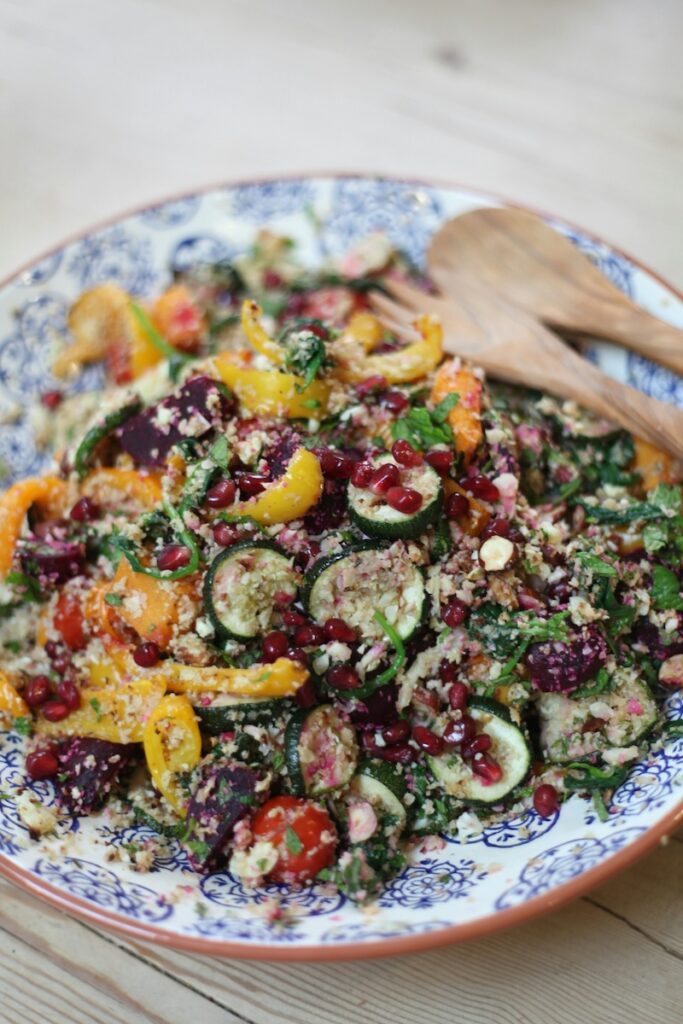
Combating diet culture in a plant-based lifestyle
The good news? Plant-based eating ISN’T diet culture. It is definitely possible to eat a plant-based diet and have a healthy, happy, balanced relationship with food. This is exactly what I teach people to do!
Here are a few ways you can take the “diet” out of your plant-based diet and have a healthy relationship with food.
Tune out plant-based diet culture noise
Once you see it, you can’t unsee it! Protect yourself from internalizing these dangerous messages by reducing your exposure to them. Unfollow social media accounts that trigger fear or anxiety about food, toss the diet book on your shelf, and practice shifting your own language around things like food, weight, and appearance.
Reconnect with the reason you eat plant-based
As I mentioned, your core reason for eating plant-based foods may have gotten lost in the noise. So, reconnect with it! Why is plant-based eating important to you? How does it connect to your values and who you are? Write down your answers so you can return to them from time to time.
Shift your focus from appearance to health
… And this is only if you have health goals related to your plant-based eating! Maybe you eat this way solely because you value the environmental or animal welfare benefits. That’s great! If you do have health goals, untangle them from weight loss. You can achieve a lot of positive health outcomes without losing a pound. Focus on meaningful health metrics like your blood pressure or cholesterol numbers. Or track outcomes related to how you feel – energy levels, mood, sleep quality, and strength.
Practicing intuitive eating
As a Certified Intuitive Eating Counselor, this is my favorite piece of advice! Intuitive eating is all about tuning out the external noise, and tuning in to your own body signals. To get started with intuitive eating, begin paying more attention to how your body feels in relationship to eating (not how someone else tells you that you should feel!). Which foods make you feel good? Which ones don’t? How do you follow diet rules like fasting or eating raw? What foods bring you pleasure? At what point does that pleasure diminish? Which foods leave you feeling satisfied? Which ones leave you unsatisfied? Tuning in to how you feel is an important step, but it’s only one piece of the intuitive eating puzzle. Learn more about intuitive eating and 3 more easy steps to take in this post.
Prioritize body appreciation
Put yourself back on the same team as your body by cultivating appreciation for it. You don’t have to suddenly love the way you look in order to believe that your body deserves to be treated well just as it is. For tips on how to start appreciating your body, read this post.
Finding support in like-minded communities
Not all of the plant-based world is tangled up in diet culture! There are some beautiful communities out there (including this one!) that promote a healthy mindset about food. Connecting with individuals who share similar values and goals can provide a sense of camaraderie and encouragement. It also gives you a safe space away from harmful messages.
Be aware of nutrition language and messaging
Diet culture is often disguised as “wellness”, “lifestyle change”, and other seemingly positive things. Steer clear of messaging that promotes ‘good’ and ‘bad’, black-and-white food labels or that shares fear-based messages about food or health. Avoid people that constantly highlight appearance and only share photos of people in thin bodies. Instead, look for messaging that promotes abundance, nourishment, balance, and flexibility. Evidence-based plant-based nutrition will always include some nuance, be mindful of context and individualization, and should never ignite fear or anxiety.
BTW, you might also like 6 Reasons Why Dieting To Lose Weight Never Works and How To Get Started With Intuitive Eating
